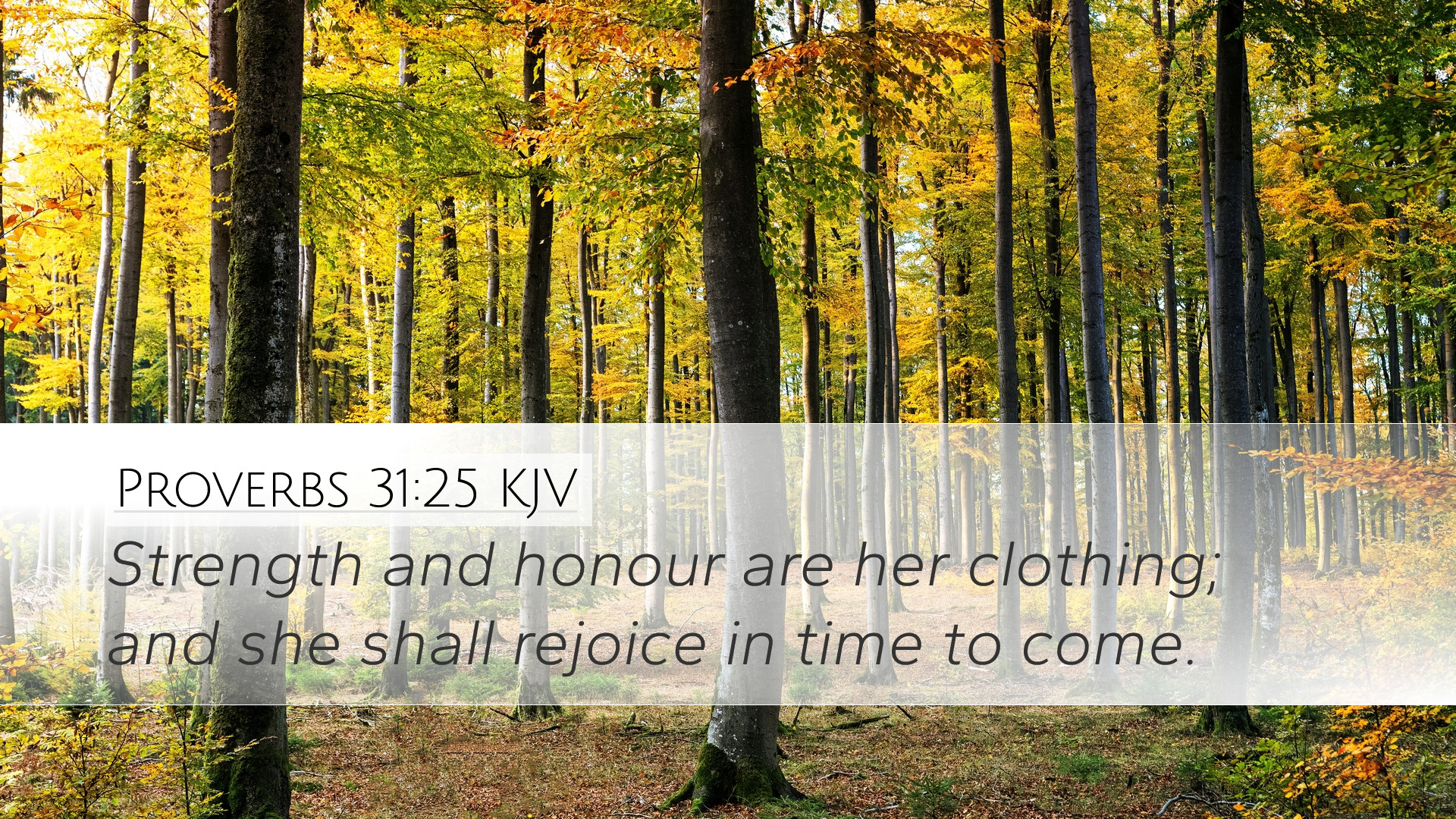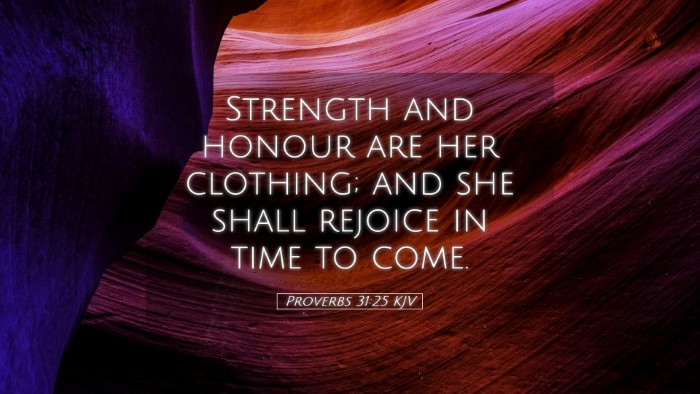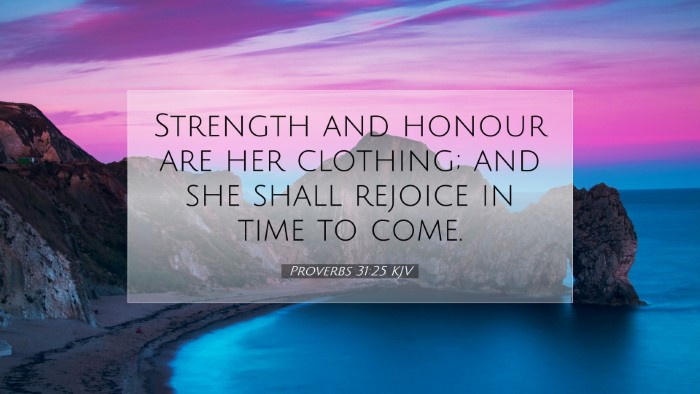Commentary on Proverbs 31:25
Verse: "Strength and dignity are her clothing, and she laughs at the time to come."
Introduction
Proverbs 31 contains an acrostic poem describing the virtues of a noble wife, culminating in verse 25, which encapsulates the character of this ideal woman.
This commentary draws from the insights of notable public domain commentators such as Matthew Henry, Albert Barnes, and Adam Clarke.
The purpose is to provide a deep exploration of this verse, benefiting pastors, students, theologians, and Bible scholars.
Overview of the Noble Woman
In Proverbs 31:10-31, the description of the virtuous woman emphasizes her multifaceted role within the family and society.
She is industrious, wise, and compassionate, embodying virtues that benefit both her household and the greater community.
Verse 25 stands as a testament to the inner strength and dignified presence of this woman.
Strength and Dignity
Strength: The Hebrew word used here suggests physical might, emotional resilience, and moral fortitude.
Matthew Henry notes that strength implies the ability to face adversities with courage and steadfastness.
This woman is not only strong in body but exhibits strength of character, which allows her to navigate life's challenges.
Dignity: This term carries the notion of honor and grace. According to Albert Barnes,
dignity refers to an inner poise that reflects her worth as a person. She stands firm in her identity as a daughter of God,
exemplifying the grace that is not merely external but also rooted in her virtuous character.
Her Clothing
Clothing often symbolizes identity and character in biblical literature.
Adam Clarke emphasizes that the noble woman does not wrap herself in superficial adornments, but rather her strength and dignity are worn like garments.
Such clothing reflects her inner qualities, making her respected both at home and in the community.
The Laughter at the Time to Come
The latter part of the verse, "and she laughs at the time to come," presents an intriguing contrast to the often-anxious anticipation of the future.
This laughter indicates confidence, a deep-seated assurance that comes from her faith and preparation.
Matthew Henry comments that this boldness in the face of the future stems from her diligent work and the provision she has made for her family.
Her laughter signals that she does not fear the uncertainty of what lies ahead but approaches it with joy and optimism.
She embodies the wise instruction of Proverbs 22:3, where the prudent foresee danger and take refuge.
Application for Today
-
For Pastors: This verse serves as a reminder to encourage and uplift women in their congregations,
acknowledging the strength and dignity they possess as integral members of the body of Christ.
-
For Students: In the academic context, this verse encourages young women and men alike to cultivate inner strength
and moral integrity, developing virtues that will sustain them through life's trials.
-
For Theologians: There is a rich theological implication in the dignity of women within the faith community,
emphasizing how God's design encompasses full respect and honor in His creation.
-
For Bible Scholars: Engaging with this verse invites exploration into the sociocultural dynamics of ancient Israel,
as well as implications for contemporary issues regarding gender roles and empowerment within the church.
Conclusion
Proverbs 31:25 encapsulates profound truths about the character of a virtuous woman.
The strength and dignity she possesses, paired with her joyful anticipation of the future, reflect an ideal that transcends culture and time.
By understanding and applying these principles, readers are invited to embrace the call to embody inner strength and grace,
fostering an outlook of hope and joy for what is to come, reflecting the glory of God in their lives.


